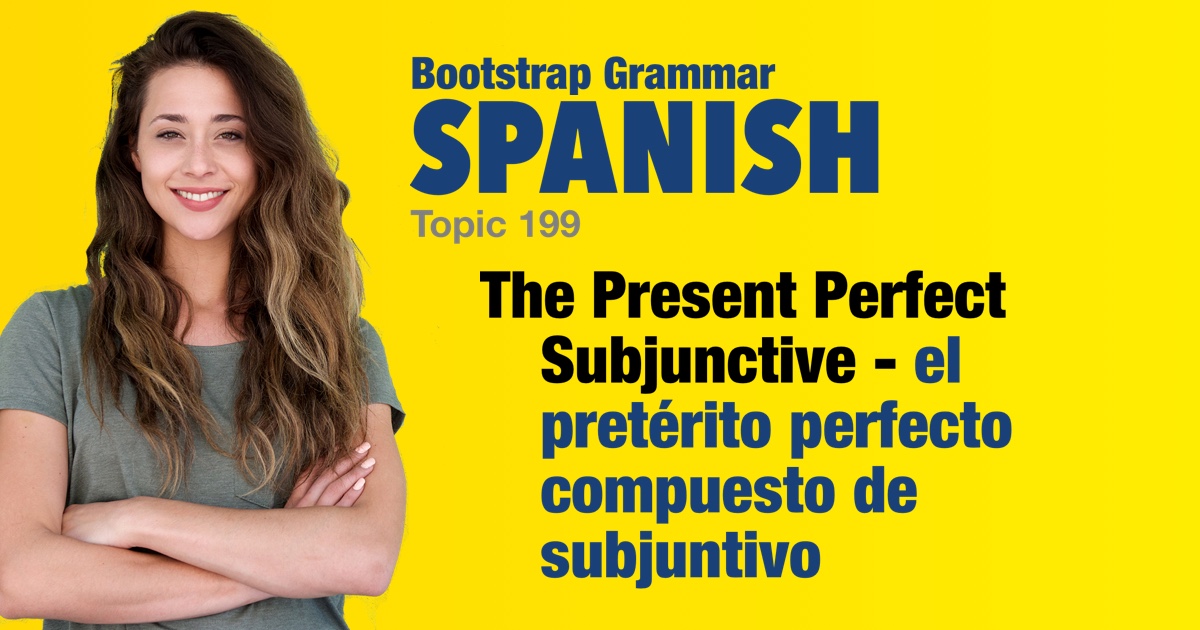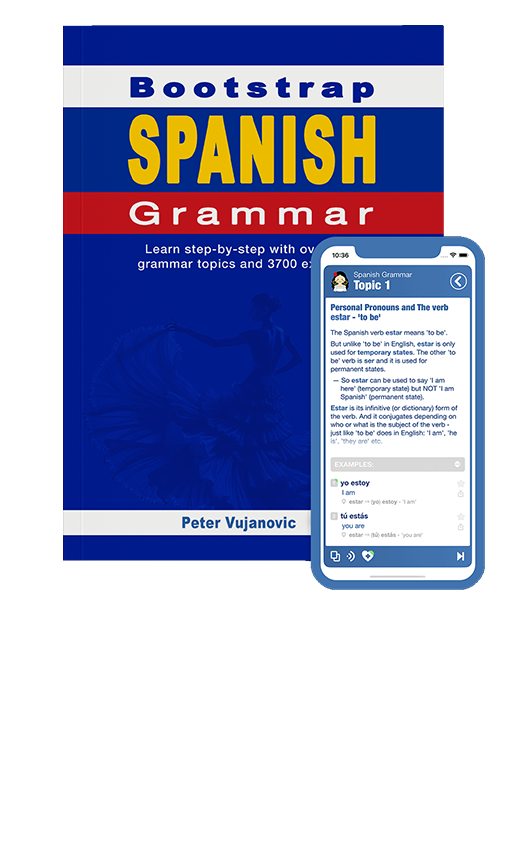Spanish grammar - The Present Perfect Subjunctive - el pretérito perfecto compuesto de subjuntivo |
|||
|
|||
The present perfect subjunctive, known as el pretérito perfecto compuesto de subjuntivo, is used to describe actions that have happened at some point in the past and are relevant to the present, particularly in contexts requiring the subjunctive mood. Formed by the present subjunctive of haber ('to have') + [past participle]. -- Recall that the present of the subjunctive mood of haber is: haya, hayas, haya, hayamos, hayáis & hayan |
| Examples: | |
|
Me alegra que hayas venido.
(It) makes me happy that (you) have come.
|
|
|
Dudo que haya terminado el proyecto.
(I) doubt that (he) has finished the project.
|
|
|
Es posible que hayamos encontrado una solución.
It is possible that (we) have found a solution.
|
|
|
Es bueno que hayas dicho la verdad.
It is good that (you) have told the truth.
|
|
|
Cuando haya terminado, te avisaré.
When (I) have finished, (I) will let you know.
|
|
|
Hasta que hayas aprendido a conducir, no puedes usar el coche.
Until (you) have learned to drive, (you) cannot use the car.
|
|
|
Me sorprende que hayas ganado el concurso.
(It) surprises me that (you) have won the contest.
|
|
|
Es una lástima que hayan cancelado el evento.
It is a pity that (they) have canceled the event.
|
|
|
Te llamaré después de que hayamos llegado a casa.
(I) will call you after (we) have arrived home.
|
|
|
Es la película más emocionante que han estrenado.
It is the most exciting movie (they) have released.
|
|
 |
|




